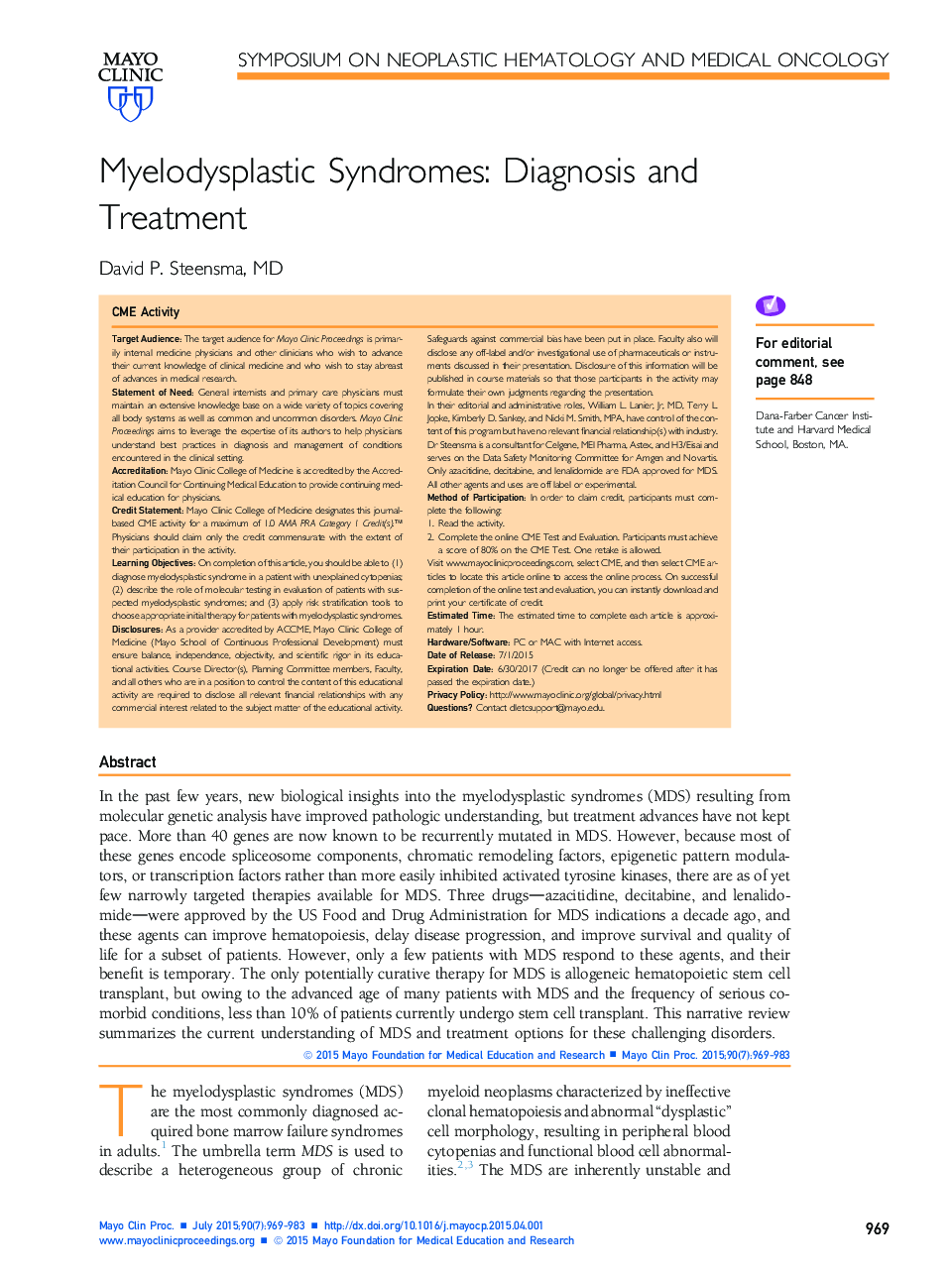| کد مقاله | کد نشریه | سال انتشار | مقاله انگلیسی | نسخه تمام متن |
|---|---|---|---|---|
| 2998486 | 1180247 | 2015 | 15 صفحه PDF | دانلود رایگان |
عنوان انگلیسی مقاله ISI
Myelodysplastic Syndromes
ترجمه فارسی عنوان
سندرم های میلوسپلاستی
دانلود مقاله + سفارش ترجمه
دانلود مقاله ISI انگلیسی
رایگان برای ایرانیان
کلمات کلیدی
HSCTAMLFDAIPSS-RIPSSTPOESAMDSMPNICUs - ICU هاThrombopoietin - ترومبوپوتیینWorld Health Organization - سازمان بهداشت جهانیFood and Drug Administration - سازمان غذا و داروTherapy-related myelodysplastic syndrome - سندرم میلولد پلاسمی مرتبط با درمانmyelodysplastic syndrome - سندرم میلودیسپلاستیکInternational Prognostic Scoring System - سیستم امتیاز دهی بین المللی بین المللیerythropoiesis-stimulating agent - عامل تحریک کننده erythropoiesisGranulocyte colony stimulating factor - عامل تحریک کننده کلنی گرانولسیتیکG-CSF - فاکتور محرک کُلونی گرانولوسیتfluorescence in situ hybridization - فلورسانس در هیبریداسیون در محلacute myeloid leukemia - لوسمی حاد میلوئیدی یا به اختصار AMLFish - ماهیMyeloproliferative neoplasm - نئوپلاسم میلوپرولیفراتیوHematopoietic stem cell transplant - پیوند سلول بنیادی هماتوپوئیتAllogeneic stem cell transplant - پیوند سلول های بنیادی آلوژنیکWHO - که
موضوعات مرتبط
علوم پزشکی و سلامت
پزشکی و دندانپزشکی
کاردیولوژی و پزشکی قلب و عروق
چکیده انگلیسی
In the past few years, new biological insights into the myelodysplastic syndromes (MDS) resulting from molecular genetic analysis have improved pathologic understanding, but treatment advances have not kept pace. More than 40 genes are now known to be recurrently mutated in MDS. However, because most of these genes encode spliceosome components, chromatic remodeling factors, epigenetic pattern modulators, or transcription factors rather than more easily inhibited activated tyrosine kinases, there are as of yet few narrowly targeted therapies available for MDS. Three drugs-azacitidine, decitabine, and lenalidomide-were approved by the US Food and Drug Administration for MDS indications a decade ago, and these agents can improve hematopoiesis, delay disease progression, and improve survival and quality of life for a subset of patients. However, only a few patients with MDS respond to these agents, and their benefit is temporary. The only potentially curative therapy for MDS is allogeneic hematopoietic stem cell transplant, but owing to the advanced age of many patients with MDS and the frequency of serious comorbid conditions, less than 10% of patients currently undergo stem cell transplant. This narrative review summarizes the current understanding of MDS and treatment options for these challenging disorders.
ناشر
Database: Elsevier - ScienceDirect (ساینس دایرکت)
Journal: Mayo Clinic Proceedings - Volume 90, Issue 7, July 2015, Pages 969-983
Journal: Mayo Clinic Proceedings - Volume 90, Issue 7, July 2015, Pages 969-983
نویسندگان
David P. MD,
